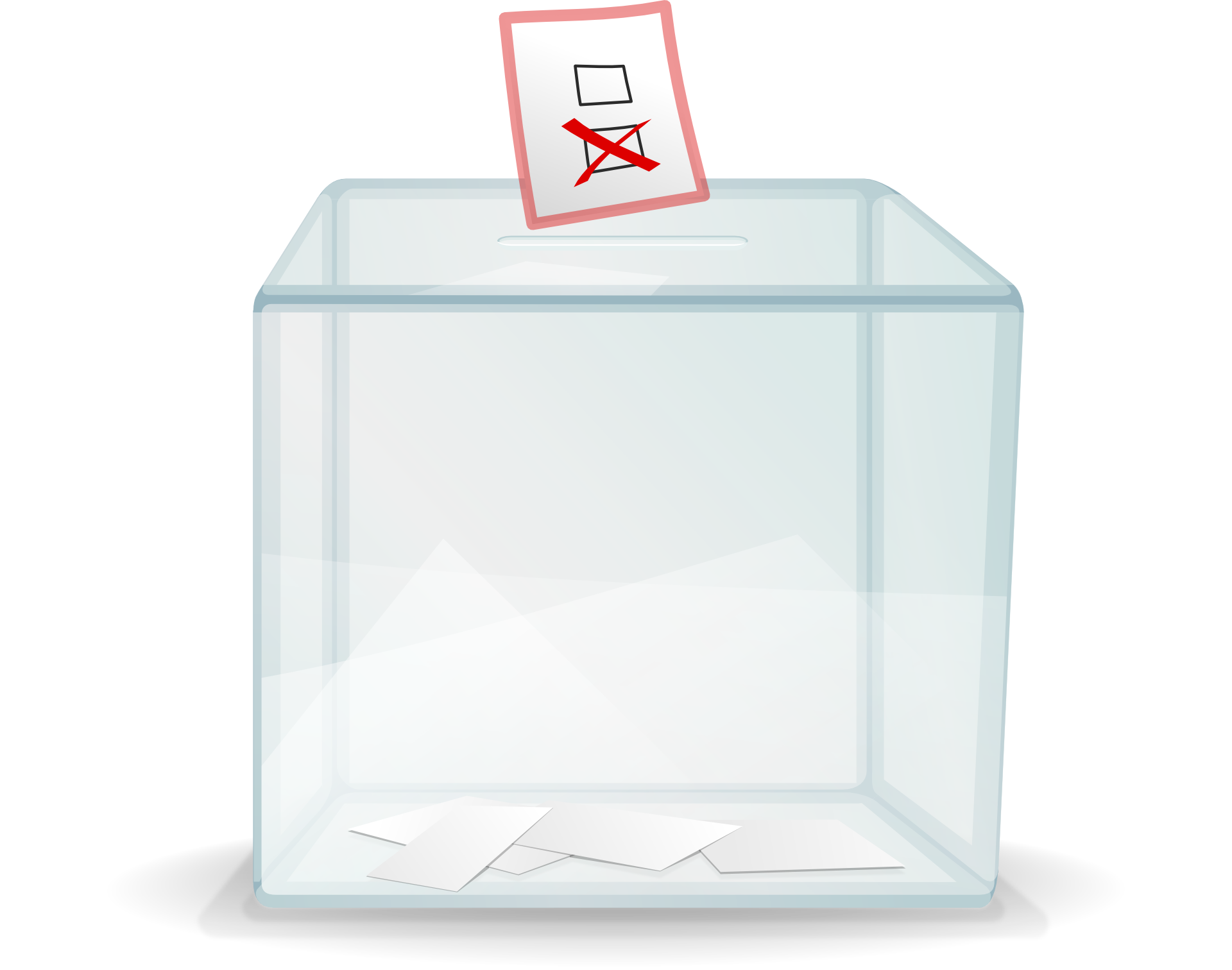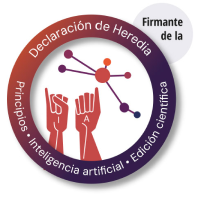 |
 |
 |
 |
 |
 |
 |
 |
 |
 |
 |
 |
Abstract
Objective: to analyze the quality of governor and deputy elections in Mexico in the 2015-2018 period. To what extent did the quality depend on the performance of the electoral bodies? Methodology: the perspective of electoral integrity is used. The main source of data comes from a survey of more than seven hundred electoral experts. Results: the hypothesis about the relevance of the electoral administration for the integrity of subnational elections in Mexico is confirmed, in particular one of its attributes: impartiality, or the application of the law without political biases. Limitations: the external indicators used to measure the performance of electoral management bodies are imperfect proxies, which cannot be applicable to other contexts. Value: studying local elections in Mexico from the perspective of electoral integrity, using original data and placing in the center of the analysis the role of electoral management bodies to increase their quality. Conclusions: given the heterogeneity of democratic development levels, it is relevant to study the quality of elections in Mexico at a subnational level, which depends, among other factors, on the impartiality of electoral bodies.
References
Alvarado, A. (2019). Violencia política y electoral en las elecciones de 2018. Alteridades, 29(57), 59-73. doi: https://doi.org/10.24275/uam/izt/dcsh/alteridades/2019v29n57/Alvarado
Álvarez, M., y Boehmke, F. (2008). Correlates of fraud: studying state election fraud allegations. En M. Álvarez, T. E. Hall y S. D. Hyde (eds.), Election Fraud: Detecting and Deterring Electoral Manipulation (pp. 99-111). Massachusetts: The Brookings Institution.
Asociación Mexicana de Ciencias Políticas (AMECIP). (s. f.). Recuperado de https://amecip.com/
Becerra, R., Salazar, P., y Woldenberg, J. (2000). La mecánica del cambio político en México: elecciones, partidos y reformas. México: Cal y Arena.
Behrend, J., y Whitehead, L. (2016). The struggle for subnational democracy. Journal of Democracy, 27(2), 155-169.
Birch, S. (2007). Electoral management bodies and the electoral integrity: evidence from Eastern Europe and the former Soviet Union. Proyecto sobre mala praxis electoral en nuevas y semidemocracias. Documento de trabajo No. 2. Universidad de Essex.
Birch, S. (2011). Electoral Malpractice. Oxford: Oxford University Press.
Cantú, F., y García-Ponce, O. (2015). Partisan losers' effects: Perceptions of electoral integrity in Mexico. Electoral Studies (39), 1-14. doi: https://doi.org/10.1016/j.electstud.2015.03.004
Clark, A. (2017). Identifying the determinants of electoral integrity and administration in advanced democracies: the case of Britain. European Political Science Review, 9(3), 471-492. doi: https://doi.org/10.1017/S1755773916000060
Cruz, O. de la. (2013) ¿Imparcialidad en los institutos electorales? Los casos del estado de México y Guerrero, 2009-2011. Andamios, 10(23). Recuperado de http://www.scielo.org.mx/scielo.php?script=sci_arttext&pid=S1870-00632013000300005
Eisenstadt, T. A. (2003). Thinking outside the (ballot) box: Informal electoral institutions and Mexico's political opening. Latin American Politics and Society, 45(1), 25-54.
Elklit, J., y Reynolds, A. (2002). The impact of election administration on the legitimacy of emerging democracies: a new comparative politics research agenda. Commonwealth & Comparative Politics, 40(2), 86-119.
Frank, R., y Martínez i Coma, F. (2017). How election dynamics shape perceptions of electoral integrity. Electoral Studies (48), 153-165. doi: https://doi.org/10.1016/j.electstud.2017.05.007
Freidenberg, F. (2017) ¿Qué es una buena elección?: el uso de los informes de las misiones de observación electoral para evaluar los procesos electorales latinoamericanos (2013-2016). Dados-Revista de Ciências Sociais, 60(4), 1095-1142. doi: https://doi.org/10.1590/001152582017143
Garnett, H. A. (2017). Election management. En P. Norris y A. Nai (eds.), Election Watchdogs: Transparency, Accountability and Integrity (pp. 117-126). Nueva York: Oxford University Press.
Gervasoni, C. (2010). A rentier theory of subnational regimes: Fiscal federalism, democracy, and authoritarianism in the Argentine provinces. World Politics, 62(2), 302-340.
Giraudy, A. (2013). Varieties of subnational undemocratic regimes: evidence from Argentina and Mexico. Studies in Comparative International Development, 48(1), 51-80. doi: https://doi.org/10.1007/s12116-012-9117-4
Gujarati, D. N., y Porter, D. C. (2010). Flexibilización de los supuestos del modelo clásico. En Autores, Econometría (pp. 315-452). Ciudad de México: Mc Graw Hill.
Ham, C. van, y Garnett, H. A. (2019). Building impartial electoral management? Institutional design, independence and electoral integrity. International Political Science Review, 40(3): 313-334. doi: https://doi.org/10.1177/0192512119834573
Ham, C. van, y Lindberg, S. (2015). When guardians matter most: exploring the conditions under which electoral management body institutional design affects election integrity. Irish Political Studies, 30(4), 454-481. doi: https://doi.org/10.1080/07907184.2015.1099097
Harbers, I., e Ingram, M. (2014). Democratic Institutions Beyond the Nation State: Measuring Institutional Dissimilarity in Federal Countries. Government and Opposition, 49(1), 24-46. doi: https://doi.org/10.1017/gov.2013.20
Hartlyn, J., McCoy, J., y Mustillo, T. (2009). La importancia de la gobernanza electoral y la calidad de las elecciones en la América Latina contemporánea. América Latina Hoy (51), 15-40. doi: https://doi.org/10.14201/alh.1330
Instituto Internacional para la Democracia y la Asistencia Electoral (IDEA). (2012). Deepening Democracy: A Strategy for Improving the Integrity of Elections Worldwide. Estocolmo: IDEA.
Instituto Nacional Electoral (INE). (s. f.a). Aspirantes a consejeros de los OPLES. Recuperado de https://www.ine.mx/archivos2/portal/Estados/OPL/index.html
Instituto Nacional Electoral (INE). (s. f.b). Sitios oficiales de los OPL. Recuperado de https://www.ine.mx/voto-y-elecciones/opl/oples-estados/
James, T. S. (2019). Better workers, better elections? Electoral management body workforces and electoral integrity worldwide. International Political Science Review, 40(3), 370-390. doi: https://doi.org/10.1177/0192512119829516
James, T. S., Garnett, H. A., Loeber, L., y Ham, C. van. (2019). Electoral management and the organisational determinants of electoral integrity: introduction. International Political Science Review, 40(3), 295-312. doi: https://doi.org/10.1177/0192512119828206
Kelley, J. (2009). D-Minus elections: the politics and norms on international election observation. International Organization (63), 765-787.
Kerr, N. (2013). Popular evaluations of election quality in Africa: Evidence from Nigeria. Electoral Studies, 32(4), 819-837. doi: https://doi.org/10.1016/j.electstud.2013.02.010
Kerr, N. (2014). EMB performance and perceptions of electoral integrity in Africa. En P. Norris, R. W. Frank y C. Ferran Martínez i (eds.), Advancing electoral integrity (pp. 189-210). Nueva York, NY: Oxford University Press.
Kerr, N., y Lührmann, A. (2017). Public trust in manipulated elections: The role of election administration and media freedom. Electoral Studies (50), 50-67. doi: https://doi.org/10.1016/j.electstud.2017.08.003
Lehoucq, F., y Kolev, K. (2015). Varying the un-variable: Social structure, electoral formulae, and election quality. Political Research Quarterly, 68(2), 240-252. doi: https://doi.org/10.1177/1065912915578176
Lipset, S. M. (1959). Some social requisites of democracy: Economic development and political legitimacy. The American Political Science Review, 53(1), 69-105.
Loza, N., y Méndez de Hoyos, I. (2016). Poderes y democracias subnacionales en México, 2001-2012. México: FLACSO.
Maldonado, A., y Seligson, M. A. (2014). Electoral trust in Latin American. En P. Norris, Richard W. Frank y Ferran Martínez i Coma (eds.). Advancing electoral integrity (pp. 229--245). Oxford: Oxford University Press.
Martí, S., Ortega, R., Somuano, M., Wright, C. (eds.) (2014). Democracy in Mexico. Attitudes and Perceptions of Citizens at National and Local Level. Reino Unido: ILAS.
Martínez i Coma, F., y Ham, C. van. (2015). Can experts judge elections? Testing the validity of expert judgments for measuring election integrity. European Journal of Political Research, 54(2), 305-325. doi: https://doi.org/10.1111/1475-6765.12084
McMann, K. M. (2018). Measuring subnational democracy: toward improved regime typologies and theories of regime change. Democratization, 25(1), 19-37. doi: https://doi.org/10.1080/13510347.2017.1307822
Méndez de Hoyos, I. (2006). Transición a la democracia en México: competencia partidista y reformas electorales, 1977-2003. México: FLACSO.
Méndez de Hoyos, I., y Loza, N. (2013). Instituciones electorales, opinión pública y poderes políticos locales en México. México: FLACSO.
Merino, M. (2003). La transición votada: crítica a la interpretación del cambio político en México. México: Fondo de Cultura Económica.
Montjoy, R. S. (2008). The public administration of elections. Public Administration Review, 68(5), 788-799. doi: https://doi.org/10.1111/j.1540-6210.2008.00919.x
Mozaffar, S., y Schedler, A. (2002). The comparative study of electoral governance —Introduction. International Political Science Review, 23(1), 5-27. doi: https://doi.org/10.1177/0192512102023001001
Norris, P. (2004). Electoral Engineering. Cambridge: Cambridge University Press.
Norris, P. (2012). Are there Global Norms and Universal Standards of Electoral Integrity and Malpractice? Comparing Public and Expert Perceptions. HKS Faculty Research Working Paper Series RWP12-010, John F. Kennedy School of Government, Harvard University.
Norris, P. (2014). Why Electoral Integrity Matters. Cambridge: Cambridge University Press.
Norris, P., Frank, R. W., y Martínez i Coma, F. (2014). Measuring electoral integrity around the world: A new dataset. PS: Political Science & Politics, 47(4), 789-798. doi: https://doi.org/10.1017/S1049096514001061
Opitz, C., Fjelde, H., y Höglund, K. (2013). Including peace: the influence of electoral management bodies on electoral violence. Journal of Eastern African Studies, 7(4), 713-31. doi: https://doi.org/10.1080/17531055.2013.841024
Pal, M. (2016). Electoral management bodies as a fourth branch of government. Review of Constitutional Studies, 21(1), 85-113. Recuperado de https://www.constitutionalstudies.ca/wp-content/uploads/2019/08/21-1-Pal.pdf
Panov, P., y Ross, C. (2013). Sub-national elections in Russia: Variations in United Russia's Domination of Regional Assemblies. Europe-Asia Studies, 65(4), 737-752. doi: 10.1080/09668136.2013.767581
Pastor, R. A. (1999). Una breve historia de las comisiones electorales. En Andreas Schedler, Larry Diamond y Marc F. Plattner (eds.), El estado de autocontrol: poder y responsabilidad en las nuevas democracias (pp. 75-81). Boulder, CO: Lynne Rienner Publishers.
PEI. (s. f.). Perceptions of Electoral Integrity Dataverse (Harvard and Sydney Universities). Recuperado de https://www.electoralintegrityproject.com/pei
PEI-México. (s. f.). Perceptions of Electoral Integrity-Mexico, (PEI-Mexico 2.0). Recuperado de https://dataverse.harvard.edu/dataset.xhtml?persistentId=doi:10.7910/DVN/17WUSN
Salazar, F. (1998). El cambio democrático en una visión de partido. México: M. A. Porrúa.
Sociedad Mexicana de Estudios Electorales, A. C. (SOMEE). (s. f.). Asociados SOMEE. Recuperado de https://somee.org.mx/v2/asociados
Sonnleitner, W. (2016). La fábrica de la (des)confianza ciudadana: las percepciones cambiantes de la integridad electoral en México. México: Centro de Estudios Sociales y de Opinión Pública y Cámara de Diputados.
Steenbergen, M., y Marks, G. (2007). Evaluating expert judgments. European Journal of Political Research, 46(3), 347-366. doi: https://doi.org/10.1111/j.1475-6765.2006.00694.x
Ugues, A. (2013). A comparative analysis of electoral management bodies in Central America (tesis doctoral). Riverside: Universidad de California.

This work is licensed under a Creative Commons Attribution-NonCommercial 4.0 International License.
Copyright (c) 2021 Irma Méndez de Hoyos, Max Grömping, Ferran Martínez i Coma, Nicolás Loza Otero






